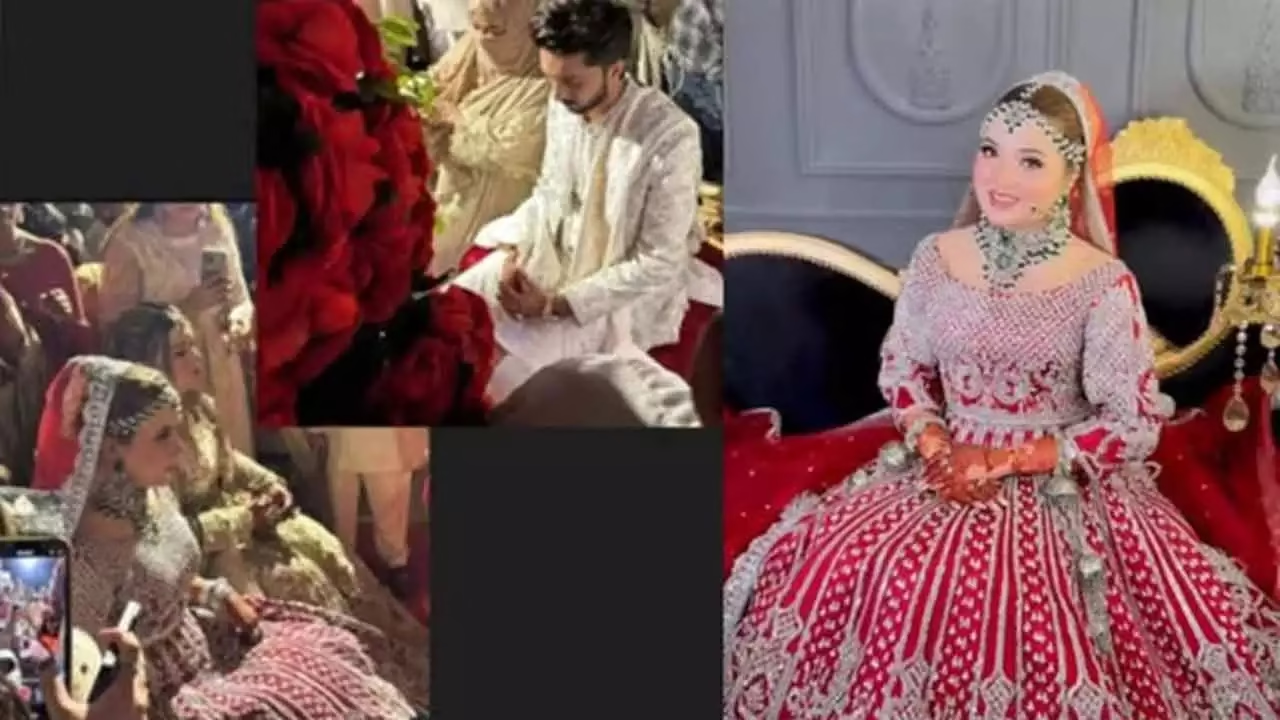The Pakistani drama Pamal has recently sparked widespread debate and controversy across social media due to a hospital scene between lead actors Saba Qamar and Usman Mukhtar. The episode, which aired without any apparent censorship, has led to mixed reactions from audiences — with some praising the emotional depth of the scene and others criticizing it for crossing cultural boundaries.
The Storyline of Pamal
At the heart of Pamal lies the story of Malika, a writer portrayed by Saba Qamar, who faces a series of emotional struggles before and after her marriage. Raised without a father, Malika grows up idealizing marriage as a fairytale — a dream of love, companionship, and stability. However, once she marries Raza, played by Usman Mukhtar, her expectations crumble as reality unfolds differently.
Raza is portrayed as a man consumed by insecurity and jealousy. He often doubts his wife’s intentions and places strict restrictions on her, causing emotional tension between the couple. The drama explores complex themes of trust, misunderstanding, and the challenges women face when they try to balance personal freedom with marital responsibilities.
The Hospital Scene That Sparked Debate
In the latest episode of Pamal, the storyline takes a dramatic turn when Raza is hospitalized after a serious incident. Upon learning about his condition, Malika rushes to the hospital. When she finally sees her husband, all the pain, anger, and emotional distance between them seem to dissolve in a moment of overwhelming emotion. Malika, unable to control herself, hugs Raza tightly — a gesture that symbolized forgiveness, love, and lingering affection.
However, this emotionally charged scene became the center of a major online controversy. Many viewers took to social media to express discomfort, calling the scene “too bold” for a Pakistani drama. Critics argued that such displays of physical affection go against the cultural norms traditionally observed in local television content.
Audience Reactions on Social Media
The social media response to Pamal’s hospital scene has been intense and divided. Some users condemned the drama’s director and producers, claiming that Pakistani dramas are now following the example of Indian shows, where intimate scenes are more common. One user wrote that the director should be ashamed for allowing such intimacy, expressing disappointment in what they perceived as a shift in moral standards.
Others labeled the scene uncomfortable to watch, especially in a family setting. Several users shared that they were relieved their parents were not present when the episode aired, while a few even questioned the broadcasting channel’s claims of maintaining family-friendly and unique content.
Despite the criticism, there were also viewers who defended the scene. Supporters argued that the hug was not inappropriate or vulgar but rather an authentic moment of emotional reconciliation between husband and wife. They pointed out that the scene conveyed depth and vulnerability, capturing the pain of two people who had been emotionally torn apart but still loved each other.
The Broader Cultural Debate
The Pamal drama controversy has reignited discussions about the fine line between emotional realism and cultural sensitivity in Pakistani entertainment. For decades, local dramas have been admired for their ability to address social issues while staying within traditional moral boundaries. However, with the changing dynamics of storytelling and audience expectations, filmmakers are experimenting with more expressive and emotionally open narratives.
Supporters of creative freedom argue that modern storytelling must evolve to reflect genuine human emotions, including affection and vulnerability. They believe such scenes should not be automatically labeled as bold or inappropriate if they serve a meaningful purpose in the storyline. On the other hand, critics fear that this growing openness could lead to a gradual erosion of cultural values and family-oriented content.
Industry Perspectives
While the Pamal team has not officially commented on the controversy, it is clear that the discussion has brought renewed attention to the show. Industry observers note that the debate reflects a deeper shift in audience perception — younger viewers are more accepting of emotionally expressive scenes, whereas traditional viewers still expect conservative storytelling.
This divide also highlights the ongoing challenge for Pakistani television producers: finding the right balance between modern realism and cultural respect. As more dramas experiment with bold themes and nuanced emotional storytelling, controversies like Pamal’s are likely to continue.
The Pamal drama controversy has become more than just a debate about one scene — it represents the evolving identity of Pakistani television. While the hospital scene featuring Saba Qamar and Usman Mukhtar drew sharp criticism for being “too bold,” it also opened conversations about artistic freedom, emotional expression, and audience expectations.
At its core, Pamal remains a story about love, misunderstanding, and forgiveness — universal themes that resonate across cultures. The passionate reactions from viewers, whether in support or opposition, prove that Pakistani dramas still hold the power to spark meaningful discussions about society, relationships, and the boundaries of expression.
Whether one views the scene as bold or beautifully emotional, Pamal has succeeded in doing what good storytelling should — making audiences feel, think, and talk.



